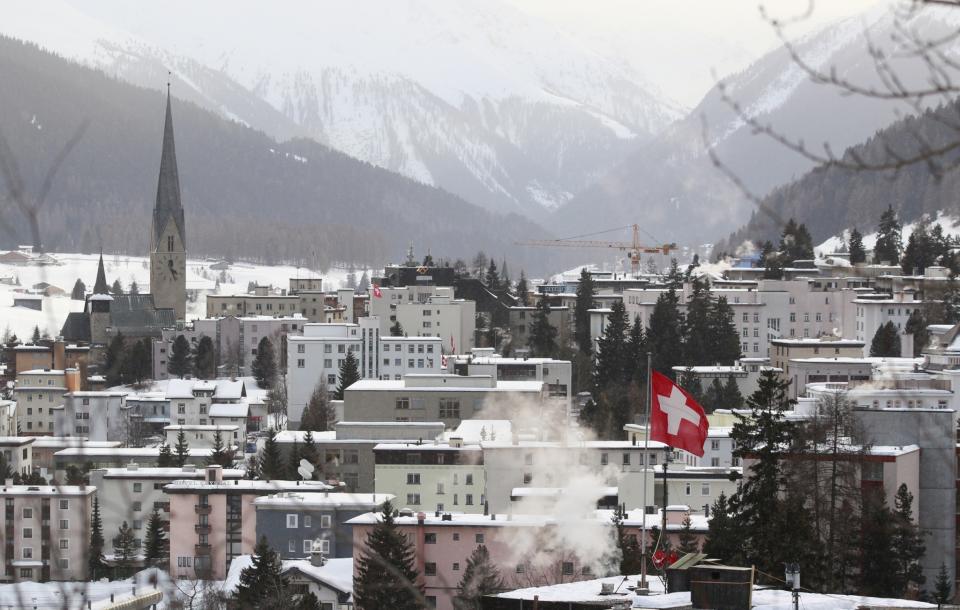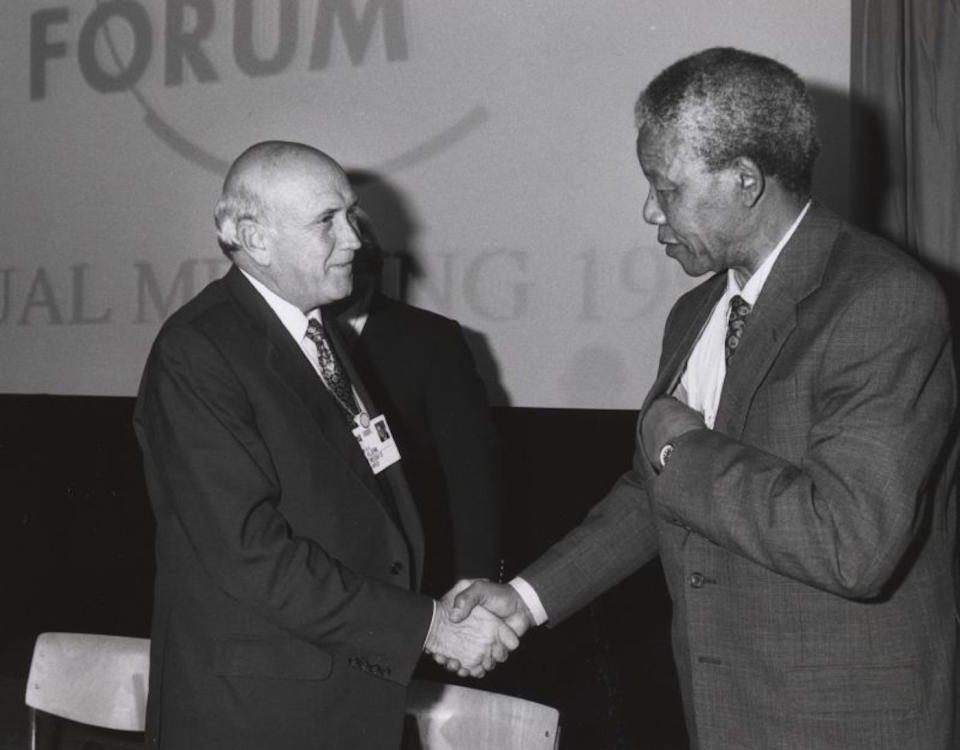What is Davos anyway?
First of all “Davos” is a misnomer. What people really mean when they say, “I’m going to Davos,” is actually that they are attending the annual meeting of the World Economic Forum (or WEF) which takes place each winter—this year, the 47th meeting, will be Jan. 17-20—in Davos Switzerland, a usually sleepy ski town some 5,000 feet up in the Swiss Alps, about 90 miles southeast of Zurich.
It’s all rather unlikely if you think about it. Each year this little, freezing cold hamlet that’s a real slog to get to, draws this incredible crowd. That Davos has become a must go-to destination for the world’s movers and shakers is really a testament to the personal power of one man, Klaus Schwab, the 78–year-old economist, founder and executive chairman of WEF, which is a non-profit organization based in Geneva that aims to engage “the foremost political, business and other leaders of society to shape global, regional and industry agendas.”
In the 19th century, Davos became well known for its sanatoria, where TB sufferers – including writers – sought a cure in the cool, clear air. Thomas Mann’s 1924 novel, “The Magic Mountain,” which explored the clash of ideas in a modernizing Europe, was set in Davos. In the same decade, Albert Einstein lectured at a philosophical conference there. The isolated setting is supposed to help visitors look beyond their everyday concerns.
WEF, which has a number of other conferences around the globe each year, does in fact bring together an incredibly impressive group of world leaders to discuss problems and find solutions. Like every year, the attendance list at this meeting is amazing: China’s president Xi Jinping, Joe Biden, John Kerry, Al Gore, IMF head Christine Lagarde (despite her recent travails), as well as scads of high-profile business people like Dave Cote of Honeywell, Marc Benioff of Salesforce (CRM) and Lloyd Blankfein of Goldman Sachs (GS).
President-elect Donald Trump isn’t going—it’s not really his scene (more on that below)—and hey, the inauguration is that Friday, but Anthony Scaramucci, head of fund of funds company SkyBridge and Trump advisor, will be there.
WEF does have its detractors, of course. Some say the meetings are really just ineffectual gatherings for the global elite to bloviate and pontificate. Others whisper that WEF is secretive and controlling and that Schwab has reportedly built a small fortune running the organization. But they don’t complain too loudly as they don’t want to be shut out.
For the uninitiated, the four days of Davos are like going to college. The first day is freshman year, confusing. Second day is like sophomore year, you find your way. Third day is like your junior year, an awesome time you wish would never end. And the final day is like your senior year; you just want to get the hell out of there.
Davos can be mysterious and overwhelming. There’s all this stuff going on but much of it is behind closed doors. One thing you do experience is spartan quarters and marching through the freezing cold while being scrutinized by Swiss police with automatic weapons.
You come to realize there are at least three levels or layers of Davos. The first is the official program. The second are publicized, invitation-only events, (panels, salons, demos and parties) that for the most part are accessible. (Mongolia Night is a fav of mine.) There are also the big parties like those thrown by McKinsey. And then behind the scenes, there are private, unpublicized meetings some of which you never hear about or are very closed-door, like private sit-downs with China president Xi.
This year’s Davos will be interesting because of the tension that exists between the WEF movement and the forces of Brexit and Trump. WEF is almost everything Trump says he isn’t. WEF is all about globalism, with a heavy dose of Europeanism. (Klaus Schwab, for instance, has 15 honorary degrees, none from a university in the United States.) WEF is all about multiculturalism and non-US hegemony. It is for and by elites. And the big guest this year is Mr. Anti-Trump himself, President Xi (whose attendance marks the first time a sitting Chinese president visits Davos). In other words, this is not an America First kinda place.
For WEF that means either it could become marginalized to a degree or it could become a place where opposition forces coalesce. On the other hand, if the past is any prologue, Davos will outlast Trump/Brexit and whatever comes next, too.
Andy Serwer is Editor-in-Chief of Yahoo Finance.

 Yahoo Finance
Yahoo Finance 


